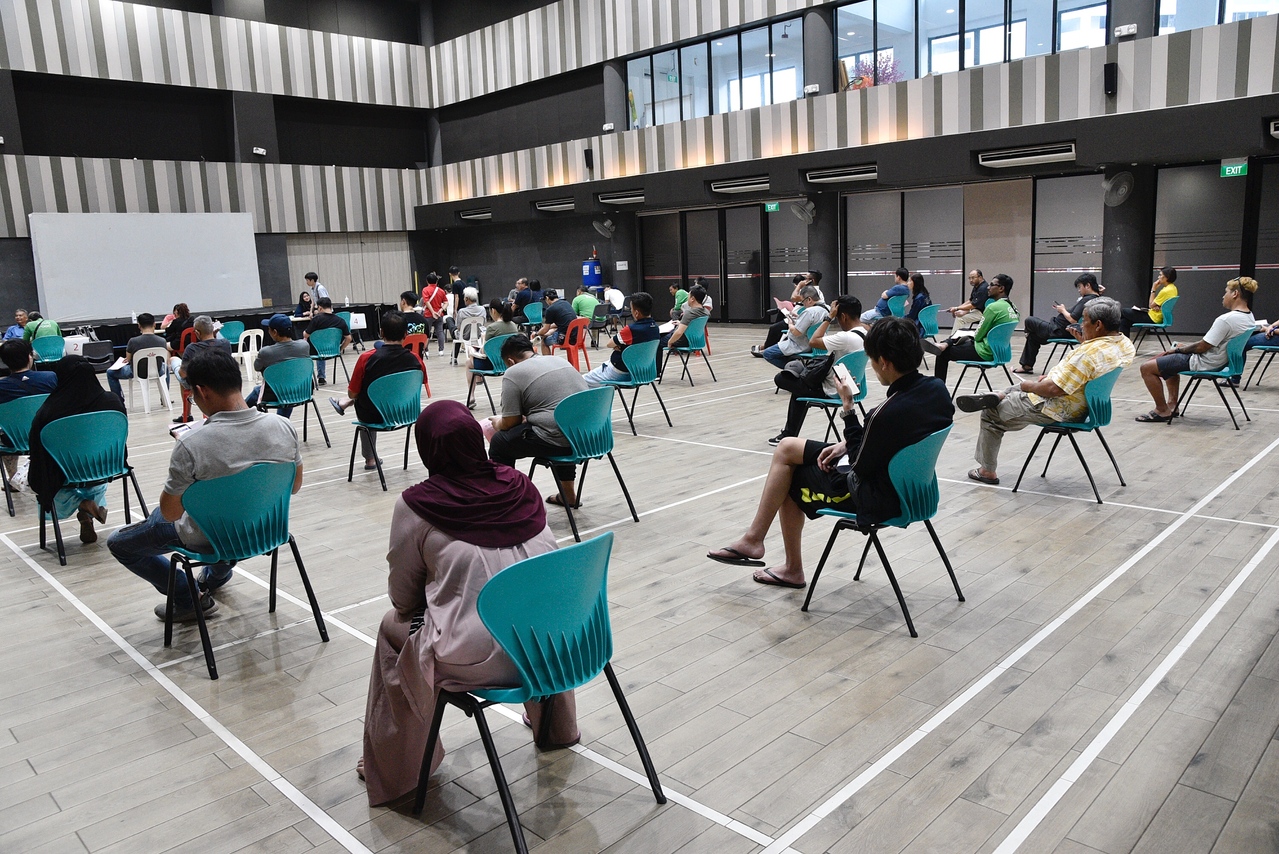Parliament: About one in three applications for Covid-19 Support Grant rejected, says Masagos
Sign up now: Get ST's newsletters delivered to your inbox

Most of the applications were rejected because the applicants did not meet the eligibility requirements.
PHOTO: ST FILE
SINGAPORE - About a third of some 115,000 Singapore residents who applied for the Covid-19 Support Grant have been rejected, said Social and Family Development Minister Masagos Zulkifli.
The grant, which gives up to $800 a month for three months, is aimed at helping Singaporeans and permanent residents who have lost their jobs or suffered a major drop in income during the ongoing pandemic.
In a written reply to a parliamentary question from Mr Louis Chua (Sengkang GRC), Mr Masagos said on Friday (Sept 4) that about 41,000 applications were unsuccessful.
MSF approved the grant for about 65,000 people, and as at Aug 16, about 9,000 applications are still being processed.
Most of the applications were rejected because the applicants did not meet the eligibility requirements, such as being retrenched or having had their salary cut by at least 30 per cent for at least three consecutive months, Mr Masagos said.
Other reasons included applications that provided employment-related details that could not be verified or they did not meet the household income criteria.
Among other things, Mr Chua, a Workers' Party MP, had asked for a breakdown of the number of people who were unsuccessful in getting the grant, and the number of applicants who were rejected but who got the grant after an appeal or when they applied again.
In his reply, Mr Masagos said the Ministry of Social and Family Development (MSF), as at Aug 16, received about 8,000 appeals for the grant and about 7,500 were approved.
He said: "When considering these appeals, MSF would have taken into account any special circumstances that would warrant special consideration for individual cases."
Separately, Mr Masagos addressed a question from Mr Leon Perera (Aljunied GRC), who had asked for an update on an upcoming survey on the Vulnerable In Community Network, and if the findings of the survey would be made public.
The network, comprising a mix of government and community groups, was set up in November last year to befriend and extend help to vulnerable individuals, such as those who sell tissue paper on the move, and cardboard collectors.
In his written reply, Mr Masagos said the survey aims to better understand the needs of the people it has connected with, so that it can provide more targeted support for them.
The ministry plans to conduct the survey towards the end of the year, and it will likely take a few months to complete, he added.
Mr Masagos said MSF will release the aggregated survey result when it is ready.
In another written reply to a parliamentary question from Mr Christopher de Souza (Holland-Bukit Timah GRC), Mr Masagos discussed the Special Needs Saving Scheme.
Mr de Souza had asked if MSF will allow parents with special needs children to specify who will get the remaining money in the scheme if a child with disabilities dies before the parents.
The Special Needs Savings Scheme enables parents to set aside CPF savings for the long-term care of children with special needs. Parents can nominate these children to receive regular payouts after the parents die.
However, if the child dies before the parents, the CPF money meant for the child remains in the parents' CPF account. The parents, if they wish, can update their CPF nomination to specify how their CPF savings will be distributed when they die, Mr Masagos said.


